Perry Smith, Strategic Partner Manager
As a young man, I was an avid reader with a thirst for knowledge and information across a diverse range of topics and areas.
At school, I was studying physics, chemistry and some other equally dry topics. So, when my granddad suggested reading science fiction, it was an easy sell to someone looking for a bit of light relief.
I discovered that science fiction was of great interest to me and that in particular, a Russian-born American author by the name of Isaac Asimov held the key to my undivided attention. I had long held an interest in "the art of the possible" and science, for me, held so many possibilities and literally the keys to the kingdom with respect to man's future.
The first books by Asimov I read, some 35 years ago, were a series called Foundation. The concept of the series is that a famous mathematician developed a mathematical method of predicting the future, but only on large scale. Of course, the compute power and capability to make this sort of analysis possible was a pipe dream in the early 1980s.
Last week, I watched as the Worldwide CTO of Microsoft outlined Microsoft's path toward quantum computing; both on the hardware and software sides of the fence. It made it clear to me that the sort of computing required to start making very large scale predictive models of "everything", from meteorology through to human behaviour, is now becoming very real. It is not here quite yet, but it is very close.
As a technologist through and through, I believe in the Peoples, Portals (technology) and Process fundamentals. This triad makes organisations work and thrive, and indeed sits at the heart of all the great successes of transformational technology. At different times, one element or another will have the lead to drive change and outcomes, but all three are required, every time, to be successful.
It still amazes me that a brilliant scientist like Asimov, back in 1966, had the foresight, knowledge and skill to not only be a highly successful scientist and author, but also was able to articulate a number of the challenges currently facing humankind with respect to this technology.
In truth, I do not think people actually understand the full and true nature of the technology transformation that is occurring in our lifetime. To say we have not yet developed the 'rules of engagement' to manage and evolve with the technology I feel is to state the obvious. For example, we have no rules around describing the way technology can or should be applied to human profiling.
We have no 'rules of robotics' to guide the developers, scientists and others that are developing artificial intelligence that will in time, fundamentally change society itself.
Many of these changes are for the better, but there are a number that without proper guidance may well see the darker side of human nature flourish, rather than enshrine the rules of 'goodness'. I think we should be starting to push our lawmakers to start enshrining the "rights of the human" into our laws and guidelines. In a world of many distractions and other things to worry about, this might seem to some to be fanciful. In truth, if we do not make time to get this right, then we will blindly fall into the future and get what we get. In this regard, Asimov was certainly correct, many things about the future are knowable and predictable, but you have to take the time out from day to day living to pay attention, and do something about your future, and more importantly that of our children and grandchildren.
I highly recommend reading Asimov's work, and hopefully give pause for some thought.
Find out how Myriad Technologies can help you improve customer service, reduce operating risks and become more profitable.

